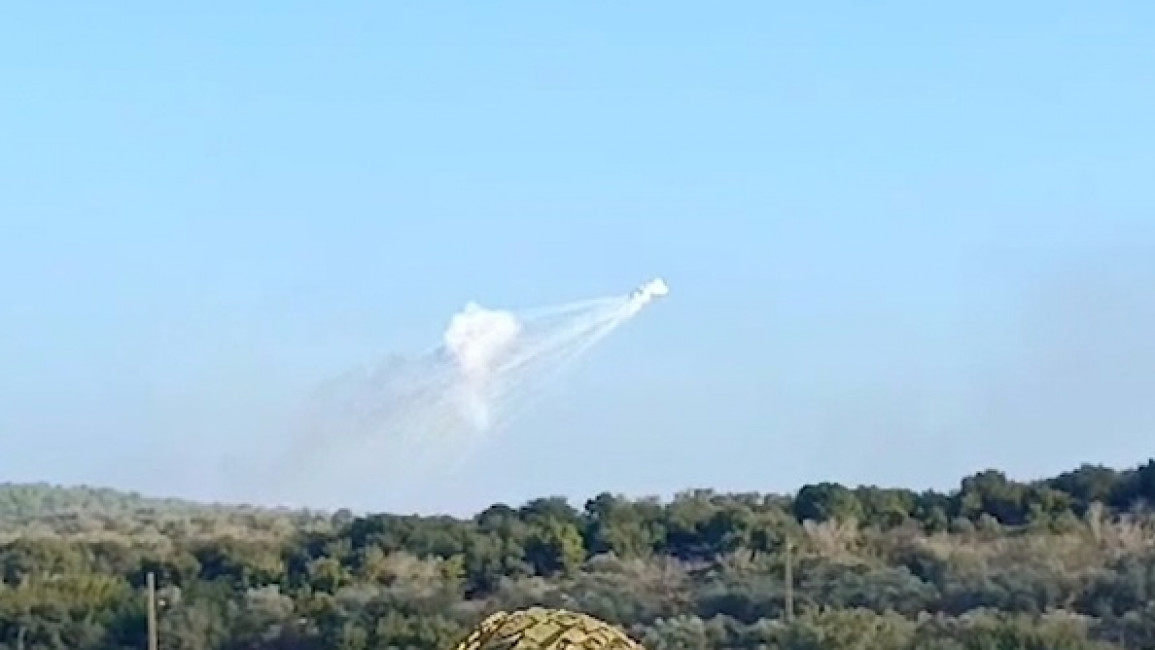Lebanese government finds soil polluted by Israel's white phosphorus, artillery shells
The Lebanese Ministry of Environment (MoE) announced on Tuesday that it found elevated levels of heavy metals and 900 times the normal amount of phosphorus in soil in south Lebanon hit by Israeli artillery and white phosphorus bombs, posing a danger to public health and the local environment.
The MoE examined five soil samples from locations in south Lebanon hit by different types of munitions including artillery shells, missiles and white phosphorus.
The abnormally high levels of phosphorus will hinder crops' ability to absorb nutrients in the soil and grow, Dr. Mohamed G Abiad, director of the laboratories for the environment agriculture and food at the American University of Beirut and senior advisor to the Minister of Environment, told The New Arab.
Hundreds of strikes have been carried out on Lebanon since cross-border clashes started between Hezbollah and Israel in the wake of the 7 October Hamas attack on southern Israel.
The use of white phosphorus has created concern in particular due to the potential incendiary effect of the munition on civilians, as well as the long-lasting environmental impact of the chemical on the local environment.
"This is not going to stay in the soil alone, but it's going to seep down to the groundwater. That's going to affect the water supply, surface water, all these are going to be contaminated," Abiad said.
Increased phosphorus can have wide-ranging environmental impacts, causing algae bloom in waterways, killing fish and even resulting in "dead zones" in larger bodies of water.
The MoE's testing also found higher than normal levels of heavy metals such as lead, barium and antimony, seemingly a result of the shells of munitions fired by Israel.
Long-term exposure to these heavy metals can lead to developmental problems in children and negative health effects in adults.
Studies in conflict zones have found that the increased presence of heavy metals in the environments caused a higher rate of birth defects and cancers.
South Lebanon is heavily dependent on agriculture. The past 14 weeks of conflict have prevented farmers from accessing their land in the border areas, as well as damaged crops and greenery.
According to the National Center for Scientific Research, 7.9 million meters of forests, bushes and agricultural land have been burned by white phosphorus and other munitions.
The head of the south Lebanon farmers' union said that the agricultural body has not yet developed guidelines for contaminated soil but is waiting for further examinations.



